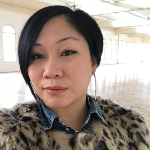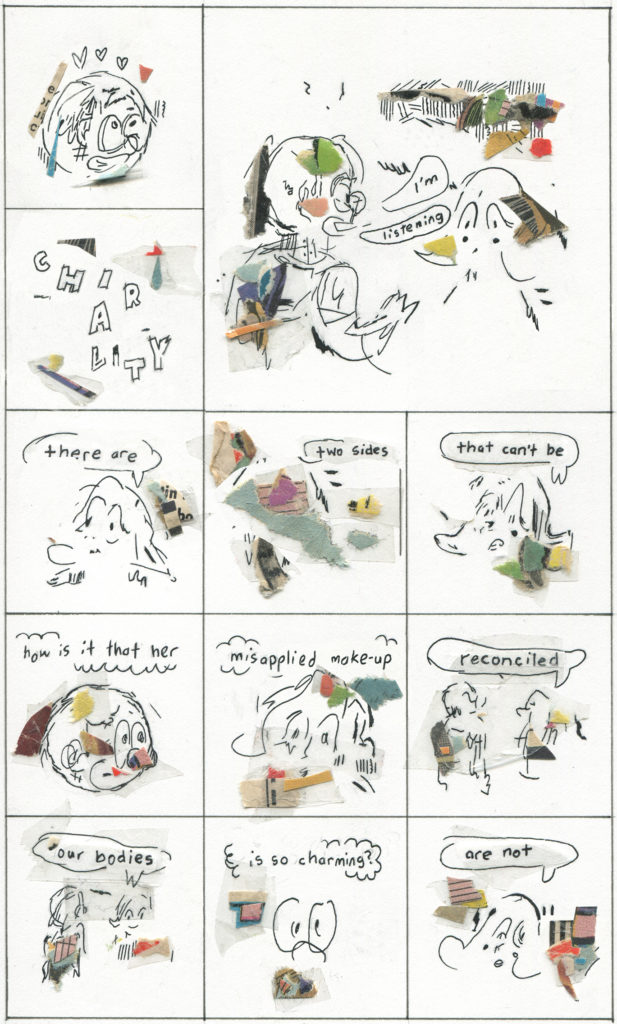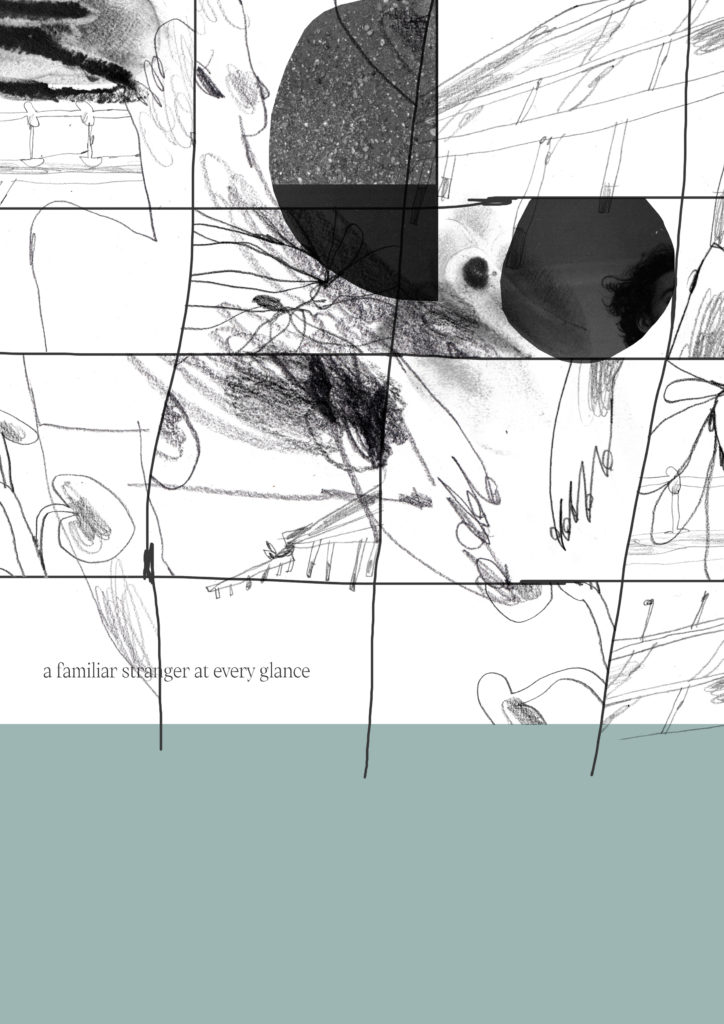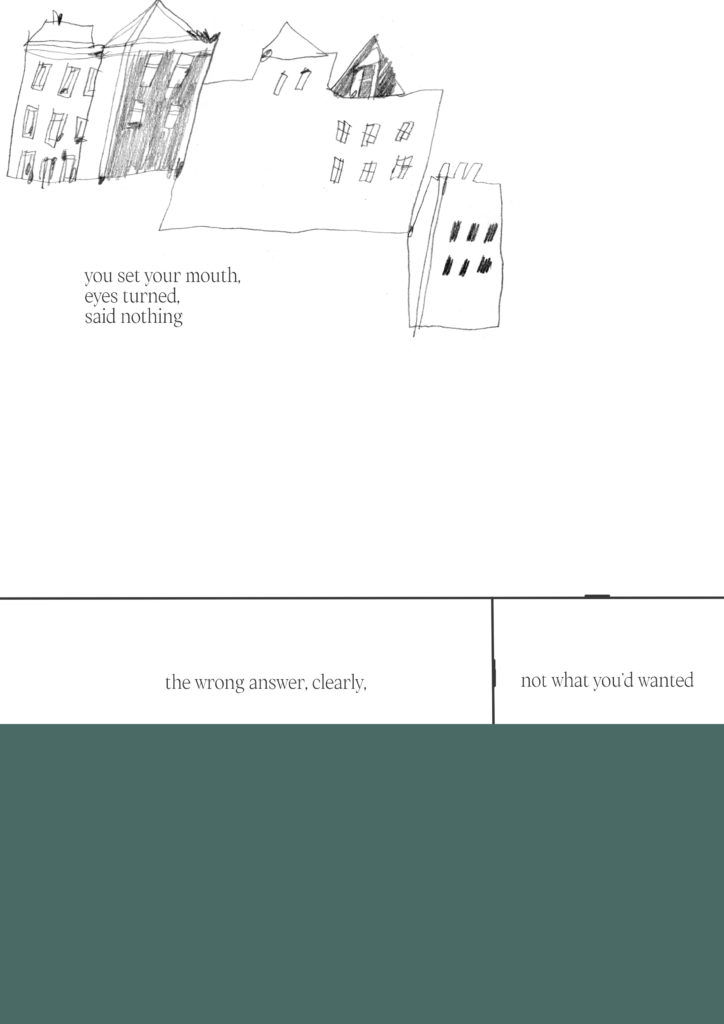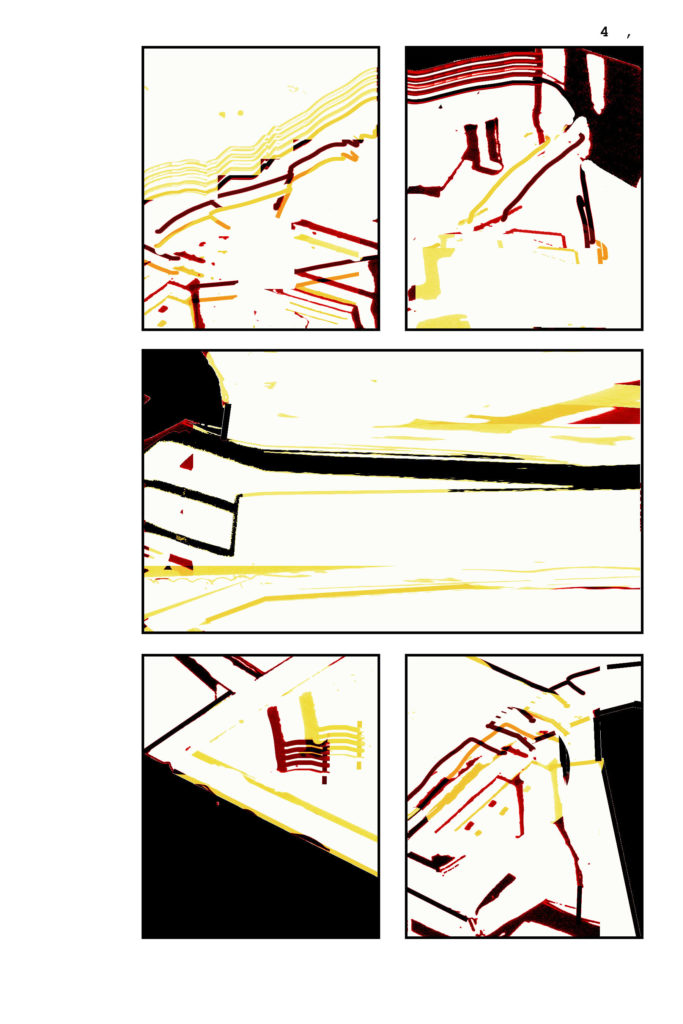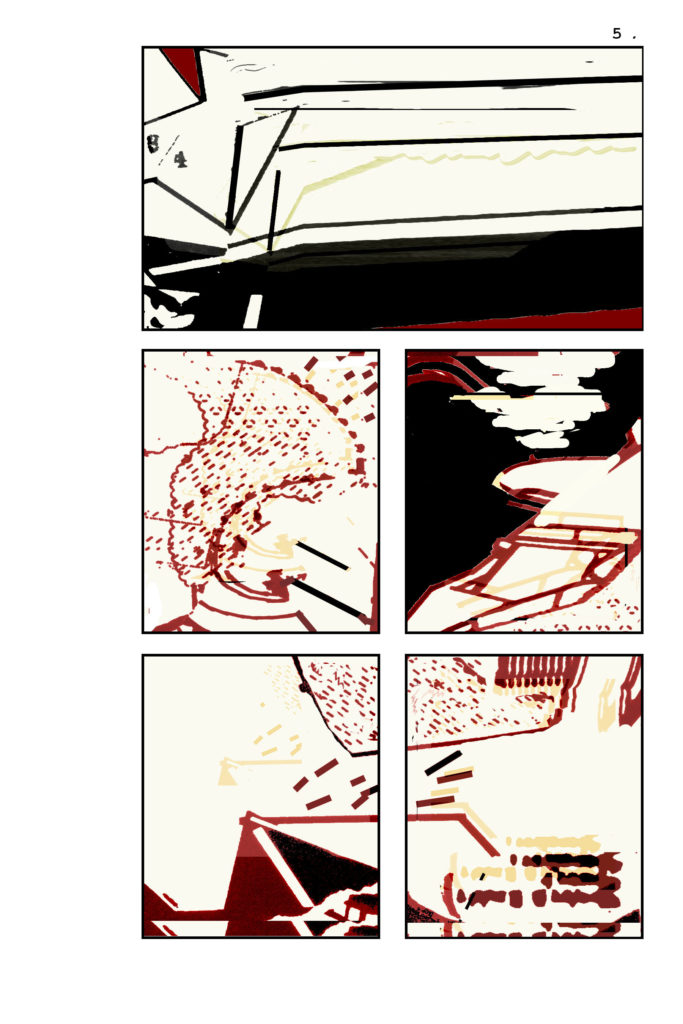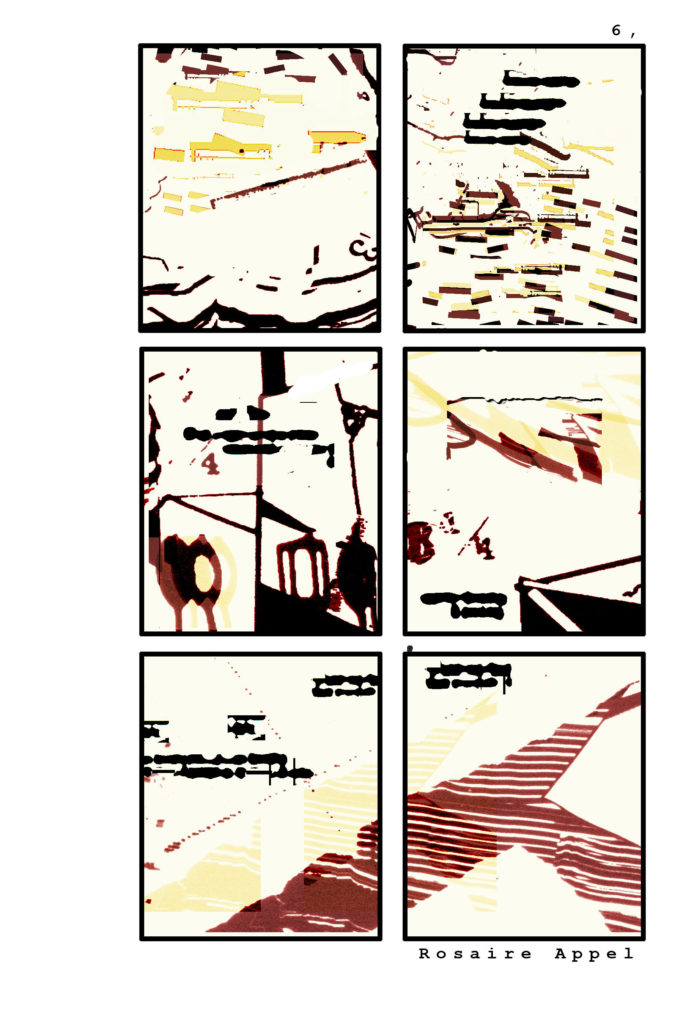Pumpkin Flowers
Visma Sen was short, dark, and sported a grey walrus moustache. He was sixty-five. Every now and often his heart would fire up without warning, he would wheeze and choke, swing his hairy arms, and gasp for air. He would feel sweat breaking out along the deep lines on his neck, trickling down his spine. The conch of his ear would crackle with heat and his earlobes would turn red. He would sense a shiver running through his head, face, and then his entire body. His eyes would draw down as if some invisible force were calling the curtains on him. That’s it, he would think, and just as suddenly the shivering would stop. Everything would return to normal.
Almost twenty years ago when the symptoms first showed, his wife Nila insisted they see a doctor. After a short commission in the Indian Army he was still settling into big city. Gomes, a quick-tempered Methodist in his early sixties, was the only doctor they knew in Calcutta. The doctor had a large forehead, listened impatiently, wrote lengthy prescriptions, and was quick on wit.
“No coffee, no smokes, no booze. Cut the small sins out, if you want to make room for large ones,” he said. They would laugh at his wisecracks and all would be forgotten until the symptoms returned.
Lately, with Nila dead, whenever his heart added an extra beat, Visma would drag himself to the dresser, pull out an old aluminium medicine box and chew down a couple of aspirins. Later he would talk himself back to his feet. But last night was different.
Last night Visma hadn’t slept at all and they weren’t the regular symptoms. It was late February. In North Calcutta where winters have become shorter each year, fans had started to purr from the high ceilings. The key-wound wall-clock had yet to strike five. Outside, the sky was lit up in patches, as the sun broke through unevenly gathered clouds. The crows were out, cawing. For a moment Visma sat at the edge of the bed; in two minds—whether to get started on his two-mile walk to the park or let it go.
His knees were sore. He could hear the stray dogs out on the street. They had barked all night as if something terrible was happening to them as everyone slept. He felt the walls around him closing in. As the barks got louder, he thought of the walking stick he had taken to the cobblers to have a piece of leather nailed to the bottom. He hated the loud metallic sound it made when striking concrete. He couldn’t have the stick back until later today, he was told. There was nothing else, and he needed something, walking these streets this early in the day. The strays scared him. More than that, he needed something for his knees to stay straight. He thought of the umbrella.
The dogs shut up after a while. He could feel his heart slamming into his chest and then slowing down. He wasn’t sure if the pounding and fluttering would get any worse. It wasn’t the usual kind of racing. Perhaps he should give it a pass today. The two mile walk to the park might be too much for him to take.
Tomorrow, he spoke out loud as if announcing his intention to someone out in the balcony past the closed rooms down the hallway. But there was no one.
Sensing a tug on his bladder, he clambered out of bed and rushed to the bathroom. Back by the window on the south end of the room, he felt a chill touching his bare chest. He switched off the fan and slid back under the wool blanket his daughter had gotten him from Madrid when she came visiting last summer with Enrique, her Spanish husband, and Leo, their six-year-old child who didn’t say a word during their entire visit.
For a while he thought about them and how it might be different living in Madrid. Then he thought about dying, and how he always believed he would know exactly when he was going to go. Nothing worse than being taken hostage, he thought, more so if you don’t know where the enemy is taking you.
Visma took a drink of water and looked at the stack of books on the bedside table—Brothers Karamazov turned to Ivan Fyodorovich’s Nightmare. One thought led to another and in his drowsiness, he couldn’t make out thought from dream.
He may have slept a little before he started up, worrying about the pumpkin flowers in the fridge. He had wrapped and sealed them last night. Would they last another day? Would the scents stay the same? Would the edges crimple? Would they freckle up? He could always get a new bunch, he thought. He knew where to find them. But flowers up in the bazaar weren’t the same as these, he thought. He felt proud—how bright they were and how big. He thought about his son and how persistently he had to pester him to have those pumpkin seeds sent from that farm in Cameron that grew those huge pumpkins he had seen on TV. He thought of the ugly spat he had with the couriers when the package was returned undelivered, and they couldn’t locate it for a few days. His son never called him back to find out if those seeds had ever reached him, or if they were any good. But that had been six months back, or almost.
He kicked himself out of the bed. On his feet he felt better. He was going to go. He had no choice.
Do it, he said out loud to himself before going about a series of breathing rituals he had cultivated into a pre-dawn program since his time in the army. The habit had stayed long after the seven years of commission and then the thirty years of teaching high school history and then the four years into his retirement, before his wife died. She had suffered a cerebral stroke in the shower. He wasn’t home when it happened. He knew he could have saved her life had he paid more attention to what she kept saying about the throbbing ache in her head during her final days.
They had been married thirty-five years. At first, he didn’t understand if anything would be same again. For days he shut himself up, afraid of questions. Then he felt numb, as if he were recovering from an operation after an organ had been removed. He felt no desire to do anything. He rarely stepped out of home. He barely ate. His breathing got worse. That had been the summer last year when his daughter came home with her family and nursed him back.
When it was time for her to leave, he didn’t stay up to say goodbye. There were a million strings pulling her away to Madrid: her son’s school, the job at the university, her husband’s business, the dog in their friend’s nursery. He became bitter the instant their taxi turned the corner toward the airport. Anyone with a good ear and spare time became the object of endless whining about how everything was stacking up for an imminent apocalypse. The sky was about to fall, and it would take everyone with it.
“Pessimism is that peculiar worm that inhabits our entire clan,” his son had said over the phone one day, “first it takes your intestine, then it takes your brain.” Visma hung up and stopped calling him. He decided he would sell the house, move back to the country, take back to farming in the family acreage they had been leasing out for a quarter century, ever since his own father passed.
He needn’t have thought out loud before a stream of realtors came calling upon him with countless proposals that would take minimum effort, yielding maximum profit. “It’s crazy being alone in this house of horrors,” one of them said. “Ask your children. See for yourself if they have anything different to say.”
Those words struck Visma like a rapier on the face. The realtor, a bald man in his thirties, was smoking between bursts of fake laughter, his teeth almost brown, he had a paunch—the kind that would make you wonder if it wasn’t a half-trainer-ball that he had strapped to his belly. Visma sensed something click inside his head—the sound of a gun slider going back and forth. He rose from his chair with a start, without uttering another word, held the realtor by the sleeve of his white voile shirt and dragged him out the front door.
Between the laboured whistling of nostrils, Visma’s mind wandered over to that instant when he had slammed the door on that realtor. Could that be the apocalypse? He remembered how everything else unravelled after that, here in this same house.
Everything he had, the burden of all his possessions, all that he had been so desperate to shake off a moment earlier, every piece of that life lived, became history and immeasurably precious. He decided he would restore the century-old ruin of the house back to its glory. That would be the blow on the heads of those waiting for him, like vultures, to wrap up and be gone.
Soon he would find an accomplice in Rahim Ali, the do-it-all handy-man and his young apprentice bride. With their help, he would set about the task of recovery and revival—straightening out the plumbing and the wiring; fixing the floors and ceilings and stairways; painting the walls and doors and hallways. So obsessed he would become with the idea of restoration; he wanted it to never end.
When Rahim Ali and his wife left, he pulled out whatever knick-knackery his eyes could find buried inside trunks and boxes, drawers, cabinets, and closets—spoons and mugs, seals and flags, trinkets, quilts and photo frames—from way past and near past. He found them and mounted them to the walls, each one at a time. Almost three thousand feet of wall space, spanning three floors in the entire house, all of that turned into a canvas, until all history was exhausted.
By then Visma Sen, restored to his pristine version, had already found Ju Li, the Chinese Tai Chi teacher at the park. Those pumpkin flowers had been her bidding. Ever since he showed her one, she would always gesture as if to ask if he had any more. He had no idea why she wanted them or what she would do with them. The only thing he could ever think was making frits out of them to eat. He wasn’t sure if Ju Li knew how to make pumpkin-flower frits the way his mother did. Nila had never learnt to do it right; she would always sear them and they would be too crunchy and bitter for his taste.
At the park, her cohorts talked about Ju Li the same way anyone would talk about a red lacewing on a white wall. Widow of a wealthy shoemaker, long gone, she was about four feet and a few inches. About fifty, the bright skin on her round face had darkened around the raised cheeks. Her cheeks and the hair on her nape glowed from the sweat she worked up every morning. The few strands of white on her neatly brushed black hair flew about her face as she walked around the park, nodding at anyone that came close or crossed her path. She had an easy manner about her. To those that didn’t know her well, it was as if she had put on a mask to hide the shadowy dark around her feet. She always had red shoes on. She spoke in Hakka to the fellow Chinese that trained at the park. To Visma’s ear, the rounded vowels sounded magical.
When he heard her speak, he thought of her in a different way—as though he were listening to a trapped river lap against real sand under a fluorescent sky, as in a photo studio. It didn’t feel real. Yet, Visma thought about her a lot after he left the park. In the park, he was drawn to her by a power beyond any he had known—the power of a temple bell—elemental and unshakeable. Watching the precise movements of her hands and enacting after her—behind closed eyes, under the rising sun—seemed to Visma an act of revival, something that gave strength to a lot of things he had stopped caring about.
When Ju Li’s husband died in a road accident, Visma heard people in the park say all sorts of things. It’s a rough trade; she’s the outsider they would never let in; she should sell everything when it’s still worth something; leave. But then, the same folks said, she should perhaps hang on.
When Visma observed her hands—past the perfectly shaped fingers, past the papery skin glowing in sweat, past the precise arc of her movements—he could see a wire-mesh casting holding her in place and yet giving her freedom. It added up to something precious—he knew it was precious—the way he felt, watching her. He felt funny thinking about that, but a tinge of sadness too would cross his mind, thinking about all the rumours about her.
They said she was the kind for whom, when it came to matters of business, no person could ever be too close and no price too dear. Visma wasn’t sure. That she had not merely survived the trade, but succeeded, single-handedly, managing to keep her husband’s Bentick Street shoe store still going —what does that say? they would ask. Visma thought they were plain jealous. In a world where men make all the difference, that she was able to hold on to the same cohort of trusted shoe crafters her husband had gathered, spoke of powers beyond the obvious. “Witchcraft,” they would say, and hold on to their bellies laughing. “But demand for hand-made shoes is no longer the same,” they would add and nod gravely.
When income from the shoe business dried out, it seems Ju Li started cooking and selling Hakka ramen in the tiny room at the back of the shoe store. So, they said. Visma wasn’t interested. Still, they would tell him about the smells from her kitchen gathering speed, about word going around that Ju Li would sell the shoe business, about the doom impending. Her people, the same band of trusted artisans, are leaving her one at a time, they’d say and look into Visma’s eyes, expecting fear or praise at the fulfilment of a dark prophesy. At the very end, it would be just her, they’d say. Just her and dirty cases filled with unsold shoes; just her and a kitchen running hard to keep up with orders ringing through the phones all hours of day.
Inside the fridge, the plastic bag containing the flowers had sweated overnight. Visma took the flowers out, one at a time, laid them out to dry and placed them inside a pink hemp sack.
The crossing at Onrait Second by the butcher shop is worst for the strays, he thought. It was the meat shavings around the open vat. What dog would let that go?
Visma’s mind raced, as he looked for the umbrella to take with him on the walk. It raced as he stepped down the three flights of stairs, out his house, onto the street. Today he would use a different approach, he thought: past Onrait First and Best Cycle.
The morning was chillier than the day before. It wasn’t much later than usual, but he felt the need to walk faster. He felt his knees were slowing him down, or maybe it was the brand-new walkers his daughter bought him. They felt heavier. He could feel a tug on the chest right in the middle of the thought, almost losing balance. He didn’t know when he would see her again or Leo, the grandson who never spoke. Or for that matter, his own son who never called back.
The desire to see his children ached with the knee and he could make out one from the other only at certain intervals. A milkman biked past. There was still some distance to the park. It sure did feel chilly today, he thought. It was then that he looked up and saw the sky was overcast. He hadn’t followed the weather lately. Perhaps there was rain in the forecast, perhaps they were just passing clouds that the winds would eventually snuff out.
Back in the park, Ju Li had already started her Tai Chi practice with the usual band of cohort—Hong, Chang, Hao, Liang, Mitra, Lawrence, Rupert, Fu. They all hung around her in a circular formation. He knew them all by the half names, just as they knew him as Sen. He pierced the circle and went straight to Ju Li with the package dangling from his left hand, umbrella on the right. Without ever pausing, without letting his eyes rise to meet hers, he transferred the pink sack automatically on to his right hand—the hand of good deeds—before holding it out towards her.
She seemed startled.
“Pumpkin flowers for you”, he said.
Her face broke into a smile at the manner Visma held the sack out for her, as if it were a bag of lost treasure being restored to its rightful owner.
As Visma looked up, he saw Ju Li’s rippled face. Untying the knot on the hemp sack with utmost care, she held it close to her chest. Dipping her right hand inside the sack, as if it were the dark, open mouth of a well, she brought a handful of bright yellow pumpkin flowers out in the open. Now holding them close to her face, she let the petals stroke her cheeks. Taking a deep breath, she looked up at the sky past Visma’s eyes. Visma could feel his ears getting warm; he could feel his heart had started to race again.
Some of Ju Li’s cohorts looked on, politely reining in the irritation at what they thought was much fuss over something quite commonplace. Others, who had never in their lives seen pumpkin flowers so huge, drew close to Ju Li, deeply inhaling the scent of the flowers right off her open palm.
Eventually, everyone returned to their respective places in the circle around Ju Li and she dropped the flowers back inside the sack. Visma took his place on the fringe of the circle, looking up at Ju Li as she dipped into the sack again, taking the bright yellow flowers out by the handful, holding them close to her face, she put them back again, but not before taking a deep whiff and looking out to the sky.
She repeated the sequence again and again as if she had enough Tai Chi for the day, as if she were in trance. And when the huge fig tree under which they stood seemed to swoop down at her feet and the skies shimmied with thunder, her trance remained unbroken.
They smell just as good as they feel she seemed to say, gesturing with her hands.
Her cohorts laughed. And they laughed even more as she repeated the act, as if relishing the power of her gestures. Then the clouds broke and it started to rain.
Visma came up close to Ju Li. He looked at her in amazement, perhaps even the kind of prurient joy one feels upon achieving consummation in the act of giving. She gestured at his umbrella, and without a word, he flipped it open. Holding on to the sack of flowers in her left hand and Visma’s arm with her right, she egged him on, toward the gates on the south end of the park. Fully aware that his usual approach back home was toward the north, Visma let himself flow freely to the soft tug of Ju Li’s wet arm. They kept strangely silent all this time as they walked, as if she were still caught up in trance and he, fully conscious, was only too careful not to nudge her out of it.
Weaving in and out of blinkered lanes he barely knew, Visma soon found himself at the doorway of a brick house with a wood archway painted gold. The street sign, craggy with dirt and bird shit, pointed toward Kimber Street. Visma felt numb. The doorway to Ju Li’s two storey house was so narrow he had to fold the umbrella in order to squeeze through.
Still holding him by the arm, Ju Li pulled him through the dark hallway on the ground floor. As he walked, he could hear the sound of heavy breathing. People were still seeping in rooms lining the passageway. Someone had put tea on the boil; he could hear the kettle murmur. Past the stack of shoe boxes, past the heap of raw hides, past the mound of old bills, Ju Li strode unmindfully toward the red cement stairway to the north of the house.
The narrow landing at the top of the stairway spread out into a whitewashed corridor that ran the entire length of the second floor. Facing the landing was a room with a bright red door and a grilled window. Behind the black iron grillwork of the window the room was dark. Toward the far left on the corridor where Visma stood, he could see a house help mopping the floor with precise movements of hand and feet. The house help looked startled as Ju Li, facing the closed door, paused for a moment, as if to catch her breath.
Still holding on to Visma’s arm, Ju Li pushed the red doors open with a delicate foot tap. Visma noticed the doors had been pulled shut, not bolted and locked like he always remembered doing in his own house when he had to leave it to the house help even for a few minutes.
As he stumbled on the raised saddle of the doorframe, into the darkness of the room, yielding to the tug of Ju Li’s soft hand around his extended arm, Visma paused for a moment, trying to interrupt the flow, to make sense of whatever was happening to him, whatever he thought might follow.
Familiar objects around the room sprung out of their contours; the bed by a second window far up on the left toward the balcony facing the street outside, a work table on the right, shelves of books with gold letterings, blue and white porcelain, a wardrobe with a red raincoat and embroidered purple boxes stacked on top of each other.
The chequered morning slimed in through the window slats and lined up on the blood-red bed sheet neatly tucked into the mahogany bed frame. Everything in the room, even ashes from burnt incense sticks, seemed to have a form, a place of its own. In the far-right of the room, toward the balcony, away from the second window, a stone Buddha sat demurely under a red electric lamp inside a carved wood shrine hung up on the wall. A raw sapodilla and a coconut sat inside a wicker basket at Buddha’s folded feet as if set up to ripen in the light.
Visma looked around the room. Tiny Buddha idols in all shapes and sizes, in wood, brass and china, looked back at him in every imaginable posture.
It was hard making things out in the dark, but Ju Li didn’t put the lights on. Instead, she strode through the breadth of the room, sat Visma on the bed, closer to the window on the far side, and pushed the window out into the balcony.
The damp morning sun came rushing in. Blue gnomes and angels stared back at him from the balcony between rows upon rows of bonsai banyans, mango and figs and jacaranda, bell, bougainvillea, hibiscus, dahlia and rose-lily. Tiny drops of rain hung from the branches like glass beads.
Visma looked around for Ju Li. She had been by his side a moment ago, looking out the window. Now, she was back dipping her right hand inside the pink hemp sack again and again. Taking handful of flowers out of the sack, she was letting them fall in a brilliant shower near the folded feet of the stone Buddha inside the shrine.
Visma felt a tug on his arm. As he turned around, he could see Ju Li holding out the hemp sack towards him, her moist eyes gesturing for him to repeat the act.
Outside, it had long stopped raining, but the sky was still overcast. The iron grillwork was shining as though it had just got a fresh coat of paint sprayed on to it. He felt he had come a long way to find this place. He was uncertain he would ever be able to trace his way back home.
Sabyasachi Nag is the author of Uncharted (Mansfield Press, 2021). He was born in Calcutta, India, and is the author of two previous collections of poetry, Could You Please, Please, Stop Singing (Mosaic Press, 2015) and Bloodlines (Writers Workshop, 2006). His work can be found in Canadian Literature, Grain, The Antigonish Review, The Dalhousie Review, and The Windsor Review, among others. He is a graduate of the Writer’s Studio at Simon Fraser University and the Humber School for Writers. He lives in Mississauga, Ontario, with his wife and son.





 BACK TO ISSUE
BACK TO ISSUE
